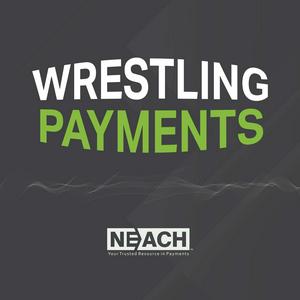Nacha Smackdown Series - Part 1 The Reversal Rumble
Send us a text. (email us if you need a response)Episode SummaryIn this episode of Wrestling Payments, Joseph Casali launches a three-part "SmackDown Rules Violations in the Ring" series, examining ACH rule violations through wrestling metaphors. He analyzes two critical NACHA case studies that payment professionals should understand to avoid costly compliance mistakes.The first case involves Glenn Transportation's unauthorized $50,000 reversal attempt against KJN Storage, earning them a warning letter as a first-time offender. The second, more severe case examines a complex arrangement between Macklan Development, Workforce Assist, and Processing for You Inc., where improper payroll reversals led to a substantial $100,000 fine.Joseph details how the third-party payment processor initiated unauthorized reversals when their customer failed to fund payroll credits, causing consumer accounts to be debited multiple times. This "nested third-party" arrangement lacked proper oversight and controls, resulting in widespread harm to employees, businesses, and financial institutions."Just like in wrestling, when you try to reverse the outcome after the match is over, you'll find yourself facing the regulatory referee," warns Casali. "In the NACHA ring, proper reversals require proper cause, not just a desire to take back what you've already given."Key InsightsPrevention Beats Correction in Payment OperationsThe root of most improper reversals isn't misunderstanding rules—it's inadequate front-end controls. Rather than focusing on when reversals are permitted, payment professionals should strengthen transaction validation before payments enter the network. Organizations eliminate the scenarios that tempt improper reversals by implementing proper authorization checks, sufficient funding verification, and receiver confirmation processes up front.Prevention not only avoids NACHA enforcement but creates more efficient operations overall. Smart payment managers know that building guardrails before transactions occur costs far less than attempting corrections after funds have moved.Clear Accountability Is Essential in Third-Party RelationshipsWhen payment services involve multiple providers, responsibility becomes dangerously diluted. The "nested third-party" arrangement in the payroll case demonstrates how quickly problems cascade when accountability chains break down. Financial institutions must establish explicit contractual requirements defining precisely who bears responsibility for compliance at each processing stage.Regular audits, performance monitoring, and transparent communication channels between all parties are essential. The most successful payment operations leaders create relationship maps that establish clear lines of authority and ensure visibility across the entire transaction lifecycle.Consumer Impact Elevates Regulatory ResponseWhat regulators might treat as minor procedural issues in B2B contexts become major enforcement priorities when consumers feel the impact. Payment operations teams need separate, enhanced control frameworks for transactions touching consumer accounts. Payroll processing, direct debits, and other consumer activities demand heightened verification steps, stronger reconciliation processes, and faster exception handling. The immediate financial hardship consumers experience from improper transactions—and the resulting reputational damage—justifies investing in these stronger safeguards. Smart operations leaders recognize this regulatory reality and allocate resources accordingly.
